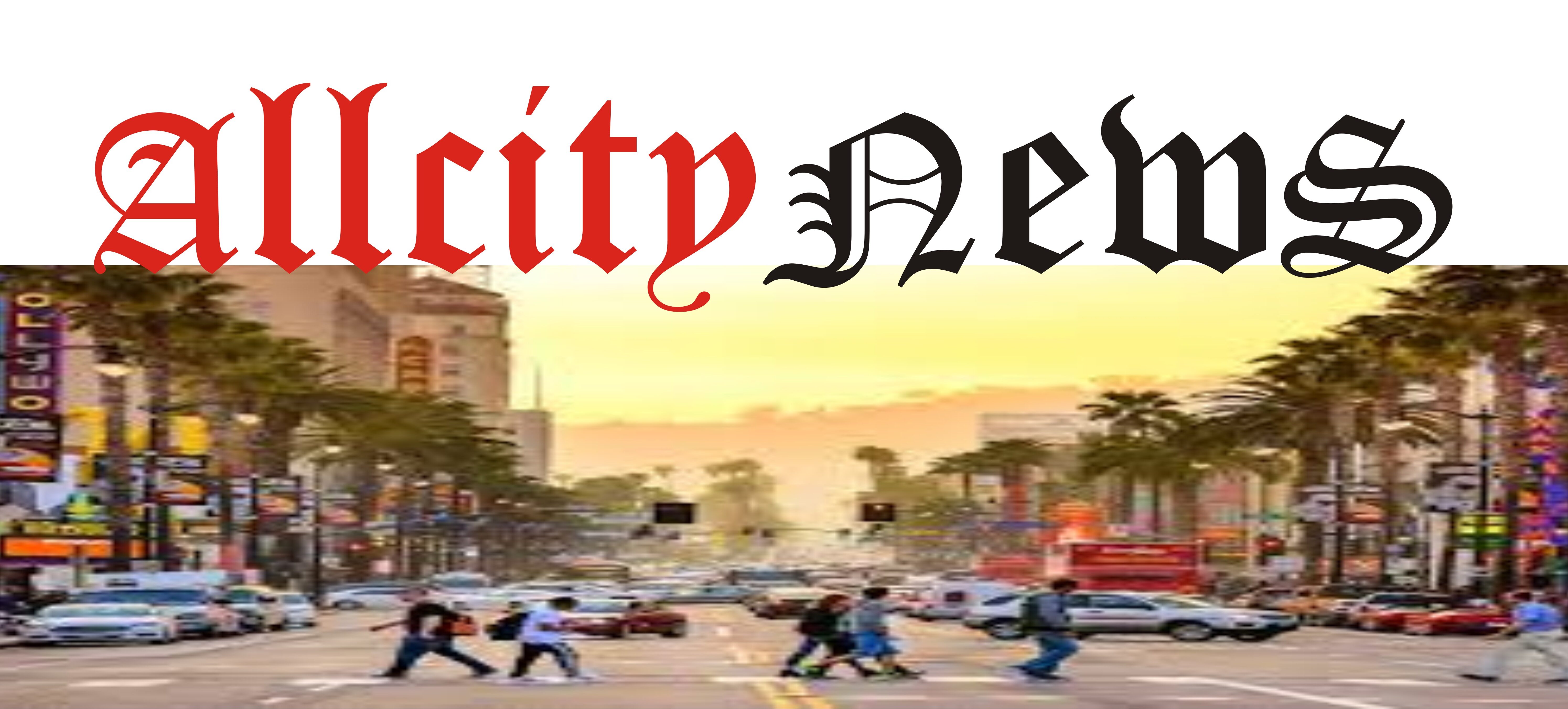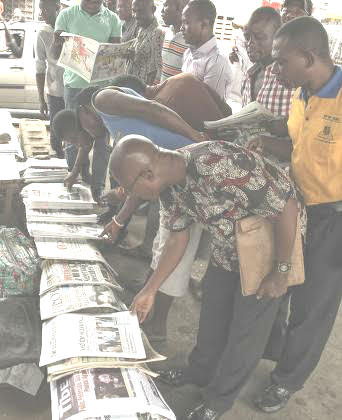
Posted by allcitynews.ng
The umbrella the body of Organised Private Sector of Nigeria {OPS}, Nigeria Employers’ Consultative Association {NECA} and one of the members, Manufacturers Association of Nigeria {MAN} have described the recent announcement of as another Federal Government policy summersault, and called for review.
The condemnation by NECA and MAN of the ban of sachet and pet bottles hot drinks, was a reminder of the famous quote of an economist that standing still is not a better option in today’s industry, in which change happens at a relentless pace.
Thus in apparent bid to forestall the harm the ban could bring to the economy, NECA and MAN noted that it could be counterproductive, in view of the hurt already done on Real Sector.
And aware that standing still could bring more harm to the already battered Real Sector, the duo noted that planned industrialisation by Federal Government would be a mirage by the planned action.
In addition they noted that many direct and indirect jobs created by the sector would be wiped off thereby increase rate of poverty and insecurity in the country.

On its part, the Director General of NECA, Adewale-Smatt Oyerinde noted that “the recent ban on the production and sale of these products is not only ill-advised, but also ill-timed in view of the current economic situation, the current rate of unemployment, the inability of the Customs officials to effectively police the borders and the likely loss of investment by these organizations.
Describing the act as economic sabotage, the umbrella body for Employers in Nigeria, expressed its fear over millions of direct and indirect jobs that would be lost if the ban is allowed to take place.
The Association, in its reaction equating the ban as economic sabotage added that it is an attempt to further drag businesses in the sector into economic abyss.
Speaking in Lagos, the Director General of the Association, Adewale-Smatt Oyerinde noted that “the recent ban on the production and sale of these products is not only ill-advised, but also ill-timed in view of the current economic situation, the current rate of unemployment, the inability of the Customs officials to effectively police the borders and the likely loss of investment by these organizations.
According to Oyerinde “At a time when all economic fundamentals are against organized business with consequential effects on job creation and enterprise sustainability, the ban by National Agency for Food and Drug Administration and Control {NAFDAC} will further drag businesses into the precipice and escalate the current rate of unemployment in the country.”
Wondering how NAFDAC can effectively curb circulation even if the products are given 100 per cent blanket ban without adequate border manning based on the porosity borders, the NECA DG reiterated his fear that without proper monitoring of the country’s porous borders, banning the products in Nigeria will not guarantee non-availability of those products in Nigerian markets as it will give room for smugglers.
“In a country where there are many unguarded entry points, this will also promote smuggling as unscrupulous elements will leverage on this ban to flood the market with dangerous adulterated products”.
While reiterating the Association’s opposition to the ill-advised NAFDAC action, the NECA boss stressed that Beverage and Alcoholic industry are major provider of employment and a significant contributor to Government tax revenue.
“Therefore, while it is important to control the abuse of alcoholic drinks in the country, it is of greater importance to ensure business sustainability, employment creation and poverty reduction among households. The consequential loss of jobs and investment will further escalate the already bad insecurity situation in the country. He therefore, called for a review of the ban, while intensifying the campaign against the drinking of alcohol by underage children and commercial drivers in all front.
He opined that the sachet economy came into being for the purpose of affordability for everyone based on the prevailing economic conditions, adding that manufacturers embarked commodities such as detergents, cocoa beverages, powdered milk, sachet drinks (alcoholic and non-alcoholic) etc to the level where they will be affordable everyone.
“Sachet economy came to be as a result of the declining purchasing power of the citizen in meeting basic needs. Therefore, alcoholic beverages in sachets, pet and glass bottles of 200ml are not targeted at underage children and commercial bus drivers, but a product of failing purchasing power of Nigerians.”
Oyerinde, therefore calling on NAFDAC to reverse the ban also advocated for further dialogue with relevant Associations, particularly the Distillers Association, the Road Transport Employers Association of Nigeria, National Union of Road Transport Workers (NURTW) among others in order to avoid the negative economic and social consequences of the ill-advised and ill-timed ban.

Likewise, MAN its part expressed its displeasure over the ban as the Real Sector is on struggling to survive due to multiple taxation, near-zero electricity supply to members of the sector and dearth of foreign exchange that have already battered the sector.
Making its position known over the announcement which came out on 5th February 2024, MAN Director General
Segun Ajayi-Kadir, MAN cried over the recent ban imposed on spirit drinks in sachets and PET bottles less than 200ml.
Wondering why FG through National Administration of Food, Drug and Control {NAFDAC} could go ahead with the its plan despite the understanding reached with critical stakeholders, at its first proposed ban,
Ajayi-Kadir, explained that the meeting with NAFDAC included key members of Distillers and Blenders Association of Nigeria (DIBAN) in a letter dated 6/11/2018 are feeling disappointed over the ban.
It would be recalled that the 6 November 2018 letter spelt out the following:
a) The assertion that the segmentation or packaging of alcoholic beverages in sachets and PET bottles is responsible for the reported increase of alcohol use among the underage is unfounded. Rather DIBAN was of the view that it is a reflection of a systemic problem of much wider ramifications;
b) That attributing the alleged increase in the use of hard drugs to the production and sales of alcoholic drinks in sachets and small PET bottles is incorrect; (no scientific or other studies have proven this claim)
c) That packaging and sales of alcoholic beverages in sachets and PET bottles has not been shown to be the reason for irresponsible use in terms of quantity, intoxication and other menaces;
d) That this ban will certainly lead to black market or bootlegging, influx and proliferation of fake and adulterated products;
e) It will also damage local manufacturing and negatively affect the economy, as well as the social wellbeing of the people of Nigeria.
MEMORANDUM OF UNDERSTANDING AND ITS REVIEW
Notwithstanding its earlier objections (to the immediacy of the ban), DIBAN participated in the preparation of a Memorandum of Understanding (MOU) which was then signed (with evident reservations) on the 18th of December 2018 between the Federal Ministry of Health, NAFDAC, CPC (now FCCPC) and Association of Food, Beverages, and Tobacco Employers (AFBTE) and Distillers and Blenders Association of Nigeria (DIBAN).
DIBAN’S POST MOU ACTIVITIES
DIBAN immediately commenced extensive support for the Federal Ministry of Health and NAFDAC to undertake the advocacy, messaging, training, education, and other roles assigned to the Committee that was formed.
During this period DIBAN spent over one billion naira (N1, 000,000,000) (as at December 2023) on various campaigns to ensure zero consumption of alcoholic beverages by the under aged and in promoting responsible use of alcoholic beverages among adults.
Our campaigns involved heavy use of radio, billboards, and social media to propagate the Ministry of Health’s carefully crafted messages which were designed to cause a behavioral change in consumers. Working with NAFDAC, we targeted young people below the age of 18 years who are not allowed by law to drink alcohol at all, and even the adults who are allowed to drink must drink responsibly.
The group explained that the Adverts on radio and television were moved to late hours to prevent young people from being influenced.
In 2021, the Ministerial Committee set up a Technical Sub-Committee to address gaps that were noticed in its work and to ensure effectiveness of the Committee which meets twice every year.
The Sub-Committee made up of experts from the Ministry of Health and other relevant government agencies identified gaps in the MOU and the need for a strategic plan to curb the problem of alcohol use among underage children in the Country.
Some of the key issues identified by the Technical Sub-Committee include:
A. That by law, underage children are not allowed to have access to any form of alcoholic beverages;
B. That there is a global rise in the use of alcoholic beverages even in countries where sachet drinks and pet bottles are non-existent;
C. That bans are generally ineffective regulation especially with competing factors such as production and influx from neighboring countries, fake products;
D. That there’s need for stronger collaboration between government agencies for better regulations.
The above, including a request to generate evidence were presented in a strategic plan to the immediate past Honourable Minister of Health who then suspended the proposed ban pending the final report of the study by Cochrane Nigeria.
ACTIVITIES OF THE MINISTERIAL COMMITTEE & TECHNICAL SUB-COMMITTEE
Development of Strategic Plan: A strategic plan was developed to ensure that there is collaborative effort at all levels to ensure that underage drinking is eliminated in the Country and that adults who drink do so responsibly while protecting and growing our local industries.
The plan was drawn up with the following objectives: (a) To identify factors that affect irresponsible consumption of alcoholic beverages;
(b) To identify factors responsible for underage drinking in Nigeria; (c) To implement strategies guided by best global practices and national priorities towards strengthening regulatory activities (e.g. access control); (d) To strengthen implementation structures through effective collaboration to ensure sustainability; and (e) To generate evidence through effective monitoring and evaluation for learning and accountability. Some of the key activities included:- 1) to harmonize all relevant alcohol and alcohol consumption related laws and regulations, 2) Improve regulation of registered alcoholic beverages, 3) Improve regulation of imported alcoholic beverages including Spirit drinks, 4) Shut down unregistered alcoholic beverage factories, warehouses etc. 5) Monitor advocacy and sensitization campaigns, and 6) Monitor regulatory and other Committee activities.
Expansion of the Committee: The immediate past Honourable Minister approved the expansion of the Committee because it was agreed that, to eliminate (zero intake) alcohol consumption by young persons under 18 years of age and to promote responsible alcohol consumption among Nigerians, all relevant agencies of government must be strengthened to effectively undertake their responsibilities.
Some of the government Ministries/agencies include – Federal Ministry of Finance Budget and National Planning, Federal Ministry of Information, National Orientation Agency, Federal Ministry of Education, Standards Organization of Nigeria (SON), Federal Inland Revenue Service (FIRS), Nigerian Customs Services, Nigeria Police, Federal Road Safety Corps, National Identity Management Commission (NIMC), Association of Local Governments of Nigeria (ALGON) and Civil Society Organizations including Faith Based Organizations were also included for better representation.
All stakeholders were assigned roles and responsibilities in line with their already existing mandates.
Engagement of Research Agencies
NAFDAC as part of getting the true position on the matter engaged an independent research Agency – Research Data Solution Limited. The Agency submitted its report to NAFDAC on August 20, 2021. The report recommended Access Control by the regulator rather than outright ban; given the fact that only 3.9% of underage are engaged in binge drinking. This therefore confirms the fact that involvement of underage in alcoholic consumption is low and could, with additional efforts, be eradicated.
AGREEMENT ON KEY ISSUES
All Committee and Sub-Committee members agreed on the following:
A. There should be collaborative effort to eliminate underage drinking or use of alcoholic beverages;
B. There should be better regulations backed by informed policy and not a general ban on the production and sales of drinks in sachet and PET bottles;
C. The sale of Alcoholic Beverages should be restricted to On-license and Off-license shops and ALGON should be strengthened to oversee the process;
D. There should be government support to promote and protect the growth of local industries and jobs through balance of trade, tackling of fake, counterfeit, and unwholesome alcoholic beverages;
E. There should be strict monitoring and evaluation of efforts by all by member organizations of the Committee.
THE CHALLENGE
Key challenges we have had in implementing strategies to eliminate underage drinking in the Country is the apparent preoccupation of NAFDAC to ban the production of drinks in sachets and PET bottles by 2024.
This is at variance with the right of private entrepreneurs to invest and engage in legitimate business. Besides, the proposed policy would amount to a deliberate destruction of the business of local and indigenous investors who through thick and thin have kept faith with the Nigerian Economy.
They have continued to invest and reinvest at enormous cost in the Economy and in the Nigerian people who are the bulk of its nearly five hundred thousand people workforce.
This is in spite of the daunting challenges that businesses have faced in the difficult times, which if we must emphasize, has led to several companies closing down and foreign investors leaving the Country. We are convinced that this present administration‘s Renewed Hope Agenda will not be best served with this ban.
If the administration is committed to encouraging and strengthening local investors, then this ban should give way to access control. At the least, one would expect that NAFDAC should allow due process of full legislative hearings by the appropriate House Committee to take place, so that relevant stakeholders can engage and the public will know the factual, expert and well-informed opinions.
Also, the Ministerial Technical Committee should be allowed to complete its work. It is important to know that the industries have invested hundreds of billions of naira not only in the business, but overtime in packaging and distribution.
Most of the huge investments are backed by enormous indebtedness to both foreign and local financial institutions It should also be borne in mind that prior to the investment made by the companies, in the packaging, distribution, logistics and advertisement of their products, the necessary approval were obtained thus prompting them to make said investments.
This is what the ban is going to wreck for no justifiable reason. It must be explicitly stated: Moderation and responsible drinking promote good health. SMALL is good, if you buy small you will consume small. If you buy big you will consume big, this is not HEALTHY.
Bigger sizes encourage consumption of bigger portions, while small sizes encourage portion control. If you take away small sizes, you are encouraging excessive consumption of alcoholic beverages.
To go ahead with the policy based on perceived danger, without empirical information and not minding the consequences is unfair to the industry operators, the thousands of workers that will lose their jobs and inimical to Nigerian economy.
PRAYERS
1. Government should intensify its activities and support in the form of access control and tighter regulations, but definitely not ban, which will be counterproductive;
2. That the ban be reversed immediately and replaced with regulations and access control such as: a) Establishment of licensed liquor stores/outlets by LGAs across the country; b) Suspected underage persons (under 18) should be required to show I.D to purchase alcoholic beverages as practiced in some other climes; c) Tighten enforcement by law enforcement agencies . d) Increased monitoring and compliance checks by NAFDAC, FCCPC and others to ensure strict product quality in terms of content and safety.
For ADVERT Placement;
for EVENT Coverage;
Have story to PUBLISH;
HAVE Breaking story with pictorial evidence
OR wants to assist allcitynews.ng
by DONATIONS,
kindly contact us via ojezand@yahoo.com. Thank you.
Allcitynews.ng’s goal: To interface between policy makers & general public, most influential, informative and reliable issues-based online newspaper, working for unity, peace and development of the Country.
Disclaimer:
Comments expressed here do not in anyway reflect the opinions of allcitynews.ng or any employee thereof. It assumes no responsibility or liability for any errors or omissions in the comments.










More Stories
FIRS expresses readiness to host National Conference on Illicit Financial flows, to boost revenue protection
Access Bank installed 974 solar-powered ATMs, Highlights Leadership at Climate Governance Initiative Launch in LBS, Lagos, Nigeria
Oriental News Nigeria, sets for 4th Summit, as former Minister, Prof. Bart Nnaji expresses his willingness to Chair the 2025 Summit